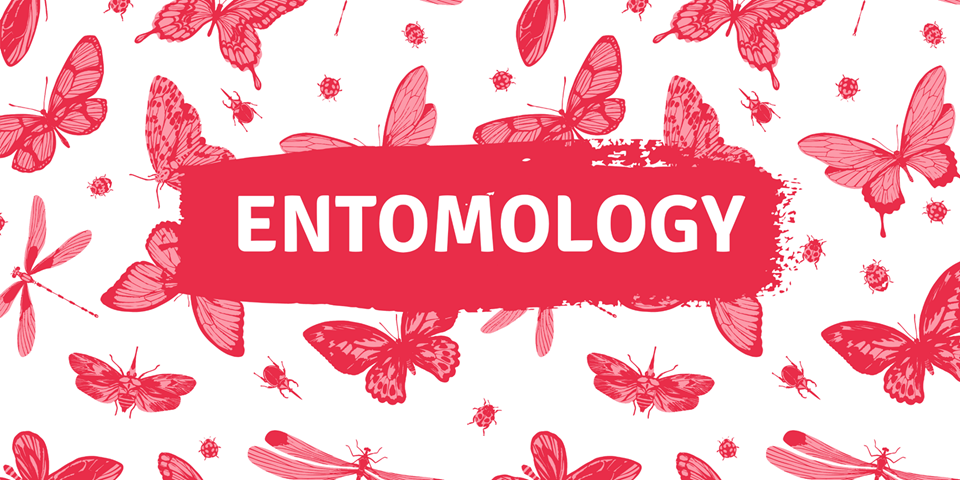student story
The Entomology Team

The Entomology Team's focus encompases insect behaviour and ecology, pest management strategies, invasive species control, conservation biology and biodiversity, and the possibilities around insects' ability to eat plastic.
Article by Storm Mackenzie (Agricultural Science student)
For those interested in insects and entomology, Associate Professor Wei Xu has developed a team of honours and PhD students working on various projects and research within the field. The team focuses on applying cutting edge science to improve sustainability of food production, environmental sustainability and address important health challenges. Their work incorporates insect behaviour and ecology, pest management strategies, invasive species control, conservation biology and biodiversity, and the possibilities around insects' ability to eat plastic.
Wei Xu’s Teachings
Associate Professor Wei Xu teaches undergrad and postgrad units, integrating his experience and passion into his lessons. He focuses on real-world applications, incorporating examples from personal research, industry experience or fieldwork to illustrate learning concepts. Sharing his challenges and success stories inspires his students, helping them understand the practical implications and relevance of their theoretical knowledge.
Making activities, experiments and projects interactive and hands-on through lab work, field trips, and case studies helps students pursue their curiosity in their areas of passion and expertise. To enrich the curriculum and show the diverse career paths, guest speakers from a network of professionals, researchers and collaborators are invited to share their knowledge and passion.
Opportunities for Students
Students interested in insects and entomology can pursue an academic pathway (PhD or Masters) in insect science, ecology, pest management, etc. Specialised courses and certifications are available in areas such as biosecurity and agricultural science.
Professional experience through internships with agricultural companies, pest control agencies, public health organisations or research labs can offer practical experience and insight into the potential career options available. Participating in such opportunities can lead to job offers, key networking opportunities or professional collaborations.
Attending conferences or symposiums, joining associations, reading publications and adding to your professional development are also great ways to involve yourself in entomology.
To find out more about projects running and get involved in entomology at Murdoch, students can visit Wei Xu’s University page here.
Current Projects
Insect Entomology
Insects play a vital role in many ecosystems and have significant implications in the agricultural and pest control fields. Understanding the molecular basis of the chemical and sensory systems that are crucial to an insect's survival and behaviour, we gain insight into how insects have evolved to sense and respond to their environment. Research into these chemosensory mechanisms assists in developing new insect population control strategies, a crucial aspect of food security and ecosystem health. Disrupting these chemical sensory systems in pest species may reduce their impact on crops and ecosystems while minimizing the reliance on harmful pesticides.
Mosquito Olfaction
Mosquitoes have been shown to display preferences in hosts, a phenomenon primarily determined by the volatile chemicals produced by the hosts. This project seeks to identify and functionally investigate mosquito smell receptors, which are crucial for detecting host volatile compounds and influencing mosquito host-seeking behaviours. With mosquito-borne diseases being prevalent globally, this research could provide significant benefits in how we fight mosquitoes in an efficient and environmentally friendly way.
Native Pollinators
Australia hosts a rich diversity of native insects (including bees, butterflies, moths, flies, wasps and beetles) that play a crucial role in the pollination of native plants and crops. Pollinator population decline can have significant impacts on agricultural productivity and ecosystem health. Some important Australian pollinators:
- Stingless Bees
- Blue Banded Bees
- Carpenter Bees
- Leafcutter Bees
- Hoverflies
Adapted to their local environments and vital in pollinating specific plant species, these pollinators are threatened by habitat loss, pesticide use, climate change and competition with invasive species. Measures to conserve our native pollinator populations include:
- Habitat Restoration
- Use of Native Plants in Gardens and Agriculture
- Reducing Pesticide Use
- Monitoring Pollinator Populations
- Government Initiatives such as the National Pollinator Strategy and the Threatened Species Strategy
Research on conservation efforts is essential to ensure the survival of these important organisms.
Insect Pest Biological Control
The use of natural enemies such as predators, parasitoids and pathogens to control pest populations is called biological control. This method aims to bring pest populations to a level that is not economically or environmentally harmful in a way that is advantageous over traditional pest control methods. Advantages include:
- Reducing Pesticide Use
- Minimizing Non-Target Effects
- Promoting Natural Pest Control Mechanisms
Examples of biological control:
- Use of parasitoids, parasitic insects that lay eggs on or in the bodies of other insects, eventually killing them. This method can be highly effective and specific.
- Predators (e.g. ladybirds, lacewings, predatory mites) that feed on pest insects.
Insect biological control can be combined with other pest control methods to achieve optimum results. Alternative methods may include:
- Crop Rotation
- Cultural Practices
- Chemical Control
Insect biological control requires a significant understanding of the ecology and behaviour of pests and their natural enemies, creating the need for continual research and development.
student story
The Entomology Team
Posted on
Topics